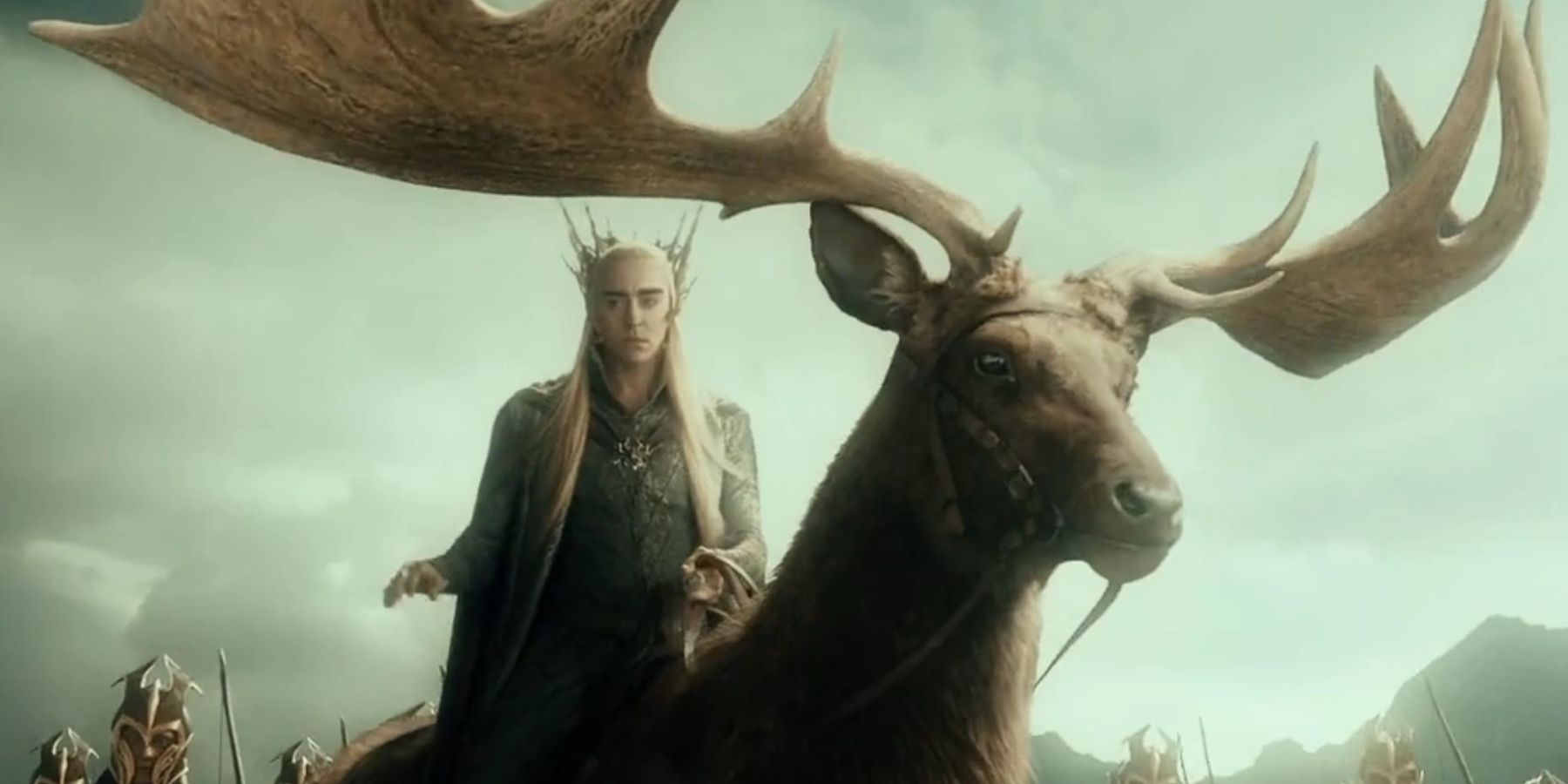Of all the characters that Peter Jackson changed and adapted for his movie trilogy of The Hobbit, King Thranduil of Mirkwood is possible the most hard-done-by in terms of how the director portrayed him. He is a very different character in Tolkien’s original books than he has come to be known as from the big screen versions, and the films certainly don't show him in a very flattering, nor a very kingly light. He is stubborn, cold, unforgiving, and often cruel, especially to his own son Legolas, and to Tauriel. It could be argued that even in the movies, he does try to keep his people out of harm's way, and that he only turns back from his greed and callousness once he sees the amount of elven blood that has been spilled in the Battle of the Five Armies, but even then, he doesn’t come out looking particularly good.
However, the books, both The Hobbit and the later Lord of the Rings trilogy, show Thranduil in a very different regard, and actually herald him as one of the better monarchs in Middle Earth history. There are so many nuances and motivations in his character that are completely warped in the films from the original content, and he is both a valiant warrior, a loyal friend and a great king in the books. Not only is he one of the best rulers, but he is also one of the longest-serving monarchs of the world, which means he must have been doing something right for his people to have revered him for so many centuries.
One of the key things to note, that gets lost amidst the chaos and the ruckus of the dwarves journey through Lake Town, is that Thranduil has long-established a trade relationship with the people on the water and the kingdom of the dwarves from long ago. Sadly, by the time the story of The Hobbit takes place, and Bilbo and Thorin's company come back to the Misty Mountain, the once thriving city of Dale is in ruin, and all of the dwarves who once lived in Erebor are dead.
However, before Smaug the dragon came and set his destructive fire upon the land, it was Thranduil who set up a trade ship between the elves of Mirkwood, the men of Esgaroth and Dale, and the dwarves of Erebor. This was a relationship built on trust, which helped all of the nations to thrive, and it was an alliance unlike any that had ever been seen before. In the books, Thranduil believed in sharing his home, his wealth, his wisdom, and his years of experience with those around him, so that he could foster an age of peace and harmony for his people. This is an aspect that definitely did not translate to his film counterpart.
In fact, the Thranduil in the films is a selfish and greedy king, who is willing to put his own pride and disputes above his elves, above his son, and above people who desperately need his help. In Tolkien’s original representation, this couldn’t be further from the truth, as it is Thranduil who willingly first comes to the aid of the people of Lake Town after Thorin’s company anger Smaug and he devastates the land, killing half of their people: ‘the king, when he received the prayers of Bard, had pity, for he was the lord of a good and kindly people; so turning his march, which had at first been direct towards the mountain, he hastened now down the river to the long lake. He had not boats or rafts enough for his host, and they were forced to go the slower way by foot, but great store of goods he sent ahead by water.’
It is also Thranduil who is most keen to avoid bloodshed and war when negotiating with Thorin in his dragon-sickness state, as the elven king advises the others: “Long will I tarry ere I begin this war for gold. The dwarves cannot pass us, unless we will, or do anything that we cannot mark. Let us hope still for something that will bring reconciliation.”
This benevolent king, who is motivated by doing the best for his elves, rushing to the aid of the people who need relief and protection, and doing everything he can to avoid unnecessary war and bloodshed is a superb monarch and a king who rules with the good of others at heart. He is not motivated by the gems in the mountain or the loss of his wife, like Peter Jackson’s movie portrayal suggests, he is simply a king who is trying to do what is right, in a world where everything is going wrong.



